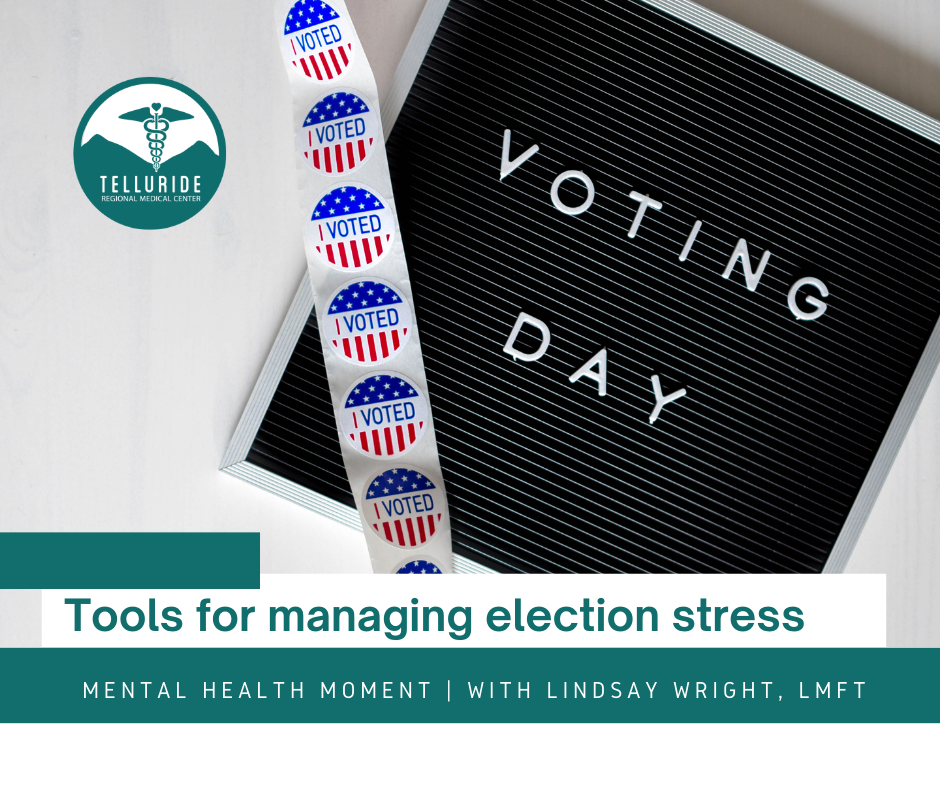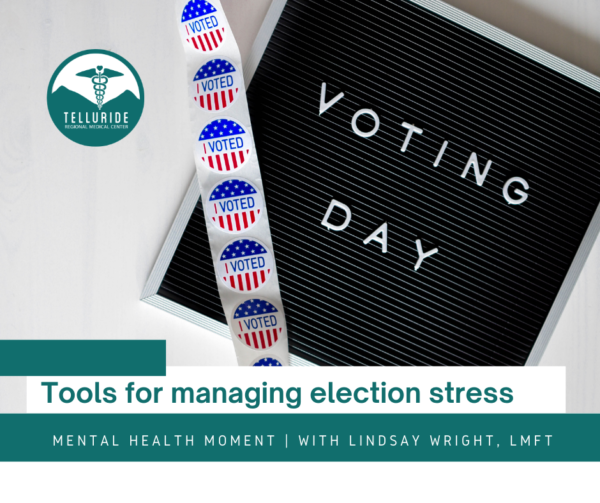
02 Nov TMC, Mental Health Moment: Tools for Managing Election Stress
If you are experiencing a mental health crisis, call The Center for Mental Health’s crisis line at 970.252.6220. For help with deep stress, Lindsay Wright can be reached by calling the Telluride Medical Center at 970-728-3848 or, if you are a patient, by messaging her through the Telluride Medical Center portal.
In this week’s Mental Health Moment, Lindsay offers tools for managing election stress.
 For many of us, the election is heavy on our minds this week. In fact, according to the American Psychological Association, 68% of adults surveyed state that the upcoming election is “a significant source of stress in their life.”
For many of us, the election is heavy on our minds this week. In fact, according to the American Psychological Association, 68% of adults surveyed state that the upcoming election is “a significant source of stress in their life.”
If you’ve been experiencing stress related to the political climate, it may be time to make some changes.
A good first step in this is to manage your news and social media intake. While it can feel tempting to be as informed as possible, constantly checking in on the news can add to our distress.
Set boundaries to limit the time that you are accessing news, perhaps only checking in once a day for a set amount of time, turning off push-notifications and temporarily delete social media apps from your phone.
Replace the time that you would typically spend scrolling with activities that help you to feel good, such as exercise, meditation, engaging in creative endeavors or practicing a hobby that you enjoy.
Make time to connect with those you care about, as it is important to be able to discuss how you are feeling with others, and to decrease feelings of loneliness and isolation.
Find a way to express your emotions, like journaling. Studies show that journaling for 20 minutes a day can lead to less symptoms of anxiety and depression, and can also help us to shift our negative thought patterns to more helpful and healthy ways of thinking.
During times of stress, we can also engage in negative thought patterns in which we forecast that the worst case scenario will happen.
If you experience this be sure to identify exactly what is happening, for example, thinking “I am having a worst-case scenario thought”, and work to provide more helpful and healthy thoughts that are based in the present, for example, thinking “I cannot know that the worst thing will happen, and I am safe in this moment.”
It can also be helpful to remember what is within our control and what isn’t. While the outcome of the electoral process may not be within your grasp to control, you can make a plan to ensure that you vote, advocate for causes that you believe in, or volunteer within your community to help to create the change that you would like to see


Pingback:DR. PAUL | Dr. Paul Hokemeyer | Election 2020: Mental Health Innovation, Thought leadership and Tribal Connections
Posted at 22:10h, 03 November[…] election stress abound. My favorite came from Newsweek and my local online community news source Telluride Inside…and Out. Strategies from these lists that I incorporated into my life included connecting with those I care […]